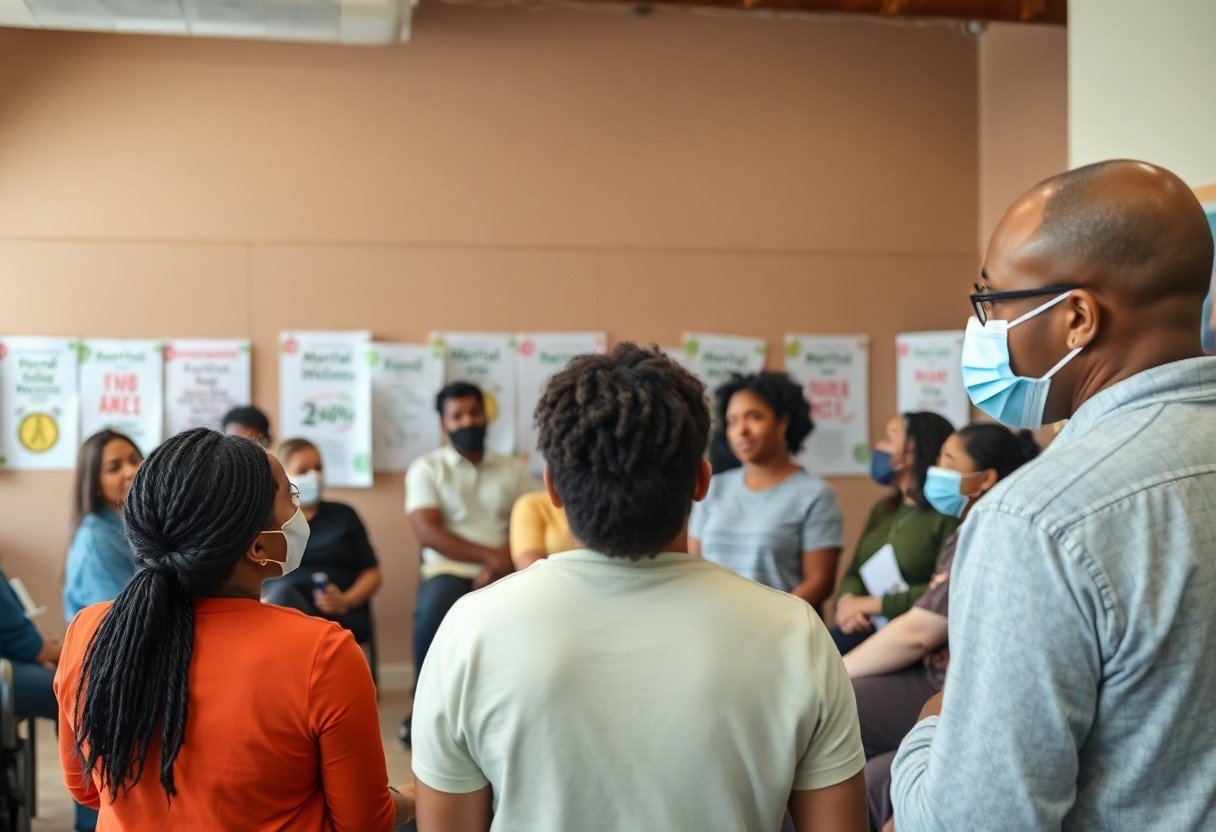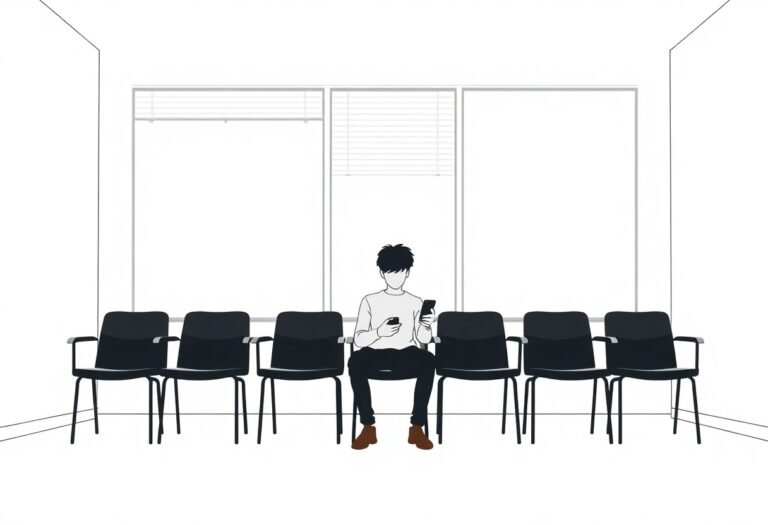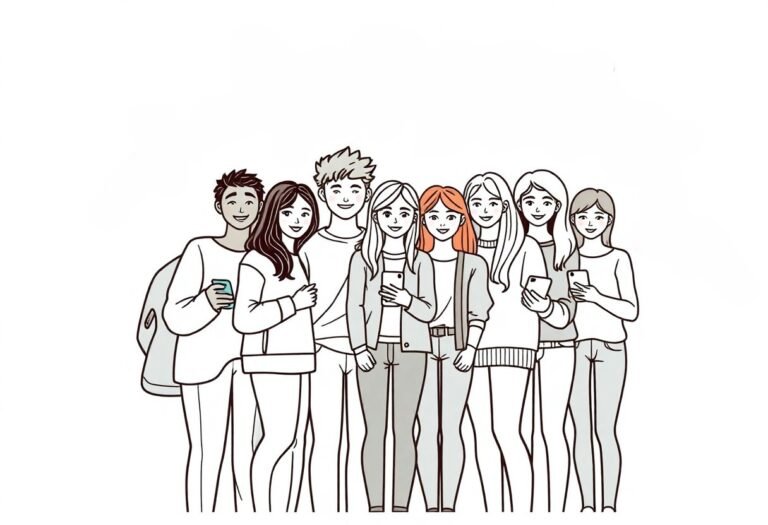BAME Communities and Mental Health Inequality
With a growing awareness of mental health issues, it’s vital to understand how these challenges disproportionately affect BAME communities and contribute to mental health inequality. You may be surprised to learn that systemic barriers and cultural stigmas significantly contribute to inequality in mental health care access. This blog post examines the unique struggles faced by these communities, highlighting both the negative impacts and positive strides being made to address this pressing issue. By understanding BAME communities and mental health inequality, you can play an active role in promoting equitable mental health resources for all.
Key Takeaways:
- BAME communities often face significant barriers to accessing mental health services, including stigma, cultural misunderstandings, and lack of representation in healthcare.
- There is a higher prevalence of mental health issues among BAME groups, exacerbated by socio-economic factors and systemic inequalities.
- Tailored mental health interventions that consider cultural backgrounds and experiences can lead to more effective support for individuals in BAME communities.
- Engaging BAME community leaders and organizations in mental health initiatives is vital for building trust and encouraging service uptake.
- Data collection and research focused on BAME populations are crucial to understand the complexities of their mental health needs and to inform policy changes.

Historical Context of BAME Mental Health
Before exploring the current mental health landscape, it’s important to understand the historical context surrounding BAME communities. Over the decades, systemic inequalities, colonization, and discrimination have influenced how mental health issues are perceived and treated in these communities. Your understanding of these historical patterns can provide insight into ongoing disparities and the need for culturally competent mental health care today.
Historical Disparities in Mental Health Care
About half of BAME groups have reported encountering barriers to mental health care, often stemming from a lack of trust in the healthcare system. Historical injustices, such as forced treatments and racial profiling, have contributed to this distrust. This has led to lower rates of diagnosis and treatment when you or someone you know seeks help.
Cultural Stigma and Mental Health
The stigma surrounding mental health issues varies significantly across cultures, often exacerbating the struggles faced by BAME individuals. Your cultural background may shape your beliefs about mental illness, leading to feelings of shame and isolation.
In fact, cultural stigmas can deeply affect your willingness to seek help. Many individuals from BAME backgrounds may feel that discussing mental health is a sign of weakness or that it will bring shame to their family. Furthermore, these stigma-driven beliefs can prevent you from openly addressing your mental health, leading to a lack of awareness and support. This isolating cycle can increase the severity of mental health issues and further perpetuate disparities in care that can be detrimental to your overall well-being.
Current Statistics on Mental Health Among BAME Communities
Clearly, mental health inequality is a pressing issue among BAME communities, with statistics revealing a stark disparity in the prevalence of mental health disorders compared to their white counterparts. Recent data shows that individuals from BAME backgrounds often experience higher levels of psychological distress, exacerbated by socio-economic factors, discrimination, and cultural stigma surrounding mental health. This not only impacts individual well-being but highlights a need for targeted interventions to address these disparities.
Prevalence of Mental Health Disorders
Against this backdrop, studies indicate that BAME communities report significantly higher rates of conditions such as anxiety, depression, and psychosis. Factors such as immigration stress, racism, and social exclusion contribute to this heightened vulnerability. It is important to understand that mental health challenges are often intertwined with cultural narratives and societal pressures, leading to a complex landscape of mental health within these communities.
Access to Mental Health Services
Mental health services have been historically underutilized among BAME populations, leading to alarming disparities in treatment. Many individuals from these communities face barriers such as language difficulties, lack of culturally competent care, and stigma associated with seeking help. These obstacles can perpetuate a cycle of unaddressed mental health issues, further illustrating the urgent need for reform.
In addition, specific studies reveal that BAME individuals are 40% less likely to receive proper mental health care. This is often due to a lack of awareness about available services and the perceived ineffectiveness of mental health treatments tailored for their cultural contexts. Addressing this gap requires you to advocate for culturally sensitive mental health resources, enabling individuals within BAME communities to receive the support they need without fear or stigma. Creating an inclusive environment that fosters understanding and accessibility is vital for improving overall mental health outcomes in these communities.
Factors Contributing to Mental Health Inequality
Despite growing awareness of mental health issues, significant inequalities persist within BAME communities. Contributing factors include:
- Socioeconomic status
- Cultural stigma
- Lack of access to services
- Discrimination
Knowing these factors can empower you to advocate for change and seek better support.
Socioeconomic Influences
Across various BAME communities, socioeconomic disparities significantly impact mental health outcomes. Lower income levels, unemployment, and poor living conditions can exacerbate stress and isolation, leading to increased mental health issues. These challenges can limit your access to necessary resources and support systems, making it vital to address these socioeconomic factors to foster better mental health.
Systemic Barriers to Care
By examining the systemic barriers that BAME individuals face, you can understand the complexity surrounding mental health care access. These barriers include limited availability of culturally appropriate services, language barriers, and the pervasive effects of discrimination within healthcare settings. Such challenges may discourage you from seeking help, creating a cycle of unmet needs.
Care within mental health systems should be equitable, yet many individuals face significant hurdles. Barriers such as racial bias, lack of cultural competence among providers, and financial constraints often hinder access to necessary care. This situation can lead to misdiagnosis, inadequate treatment, and worsening mental health conditions. It’s vital for you to recognize these systemic issues and advocate for inclusive reforms to ensure that all individuals can receive the care they deserve.
Case Studies of BAME Communities
Now, let’s explore notable case studies highlighting mental health inequality within BAME communities. These examples reveal significant disparities in mental health access, representation, and outcomes:
- African: 30% of respondents reported experiencing anxiety compared to 15% in the general population.
- Caribbean: Over 50% of individuals reported a lack of culturally appropriate mental health services.
- South Asian: 40% reported high levels of stigma around mental health, impacting help-seeking behavior.
- Mixed heritage: Young people from mixed backgrounds faced unique challenges, with 25% reporting feelings of isolation.
African and Caribbean Communities
An investigation into the mental health challenges faced by African and Caribbean communities reveals alarming trends. For instance, studies show that these groups experience higher rates of mental health issues but are less likely to seek help due to stigma and distrust of healthcare services. Access to treatment is often hindered by cultural barriers and a lack of representation within healthcare systems.
South Asian Communities
Caribbean residents demonstrate a palpable struggle with mental health stigma. Many South Asian individuals face similar obstacles, with ingrained cultural perceptions surrounding mental illness leading to a reluctance to engage with mental health services.
Hence, South Asian communities experience significant mental health challenges, compounded by cultural stigma and a scarcity of appropriate services. Studies indicate that 30% of South Asians suffer from mental health issues daily, yet only 10% seek professional support. This gap often arises due to a fear of societal judgment and a lack of understanding among healthcare providers, further exacerbating disparities in mental health care. Creating targeted interventions that embrace cultural sensitivities is vital to improving outcomes in these communities.
Strategies for Improvement
Many effective strategies can help address mental health inequalities in BAME communities. By implementing culturally sensitive programs, enhancing access to mental health services, and fostering community engagement, you can play a vital role in promoting mental wellbeing. Collaboration between community organizations and mental health professionals can create tailored interventions that resonate more closely with the specific needs of these communities.
Community-Based Interventions
Interventions rooted in the community can significantly uplift mental health awareness and support within BAME communities. By facilitating workshops, support groups, and outreach programs, you can create safe spaces where individuals feel comfortable discussing their mental health challenges. Engaging community leaders and trusted figures can help dismantle stigma and promote mental wellbeing while ensuring that services reflect the cultural context of the people they serve.
Policy Recommendations
After assessing the unique challenges BAME communities face, it’s vital to advocate for policies that address systemic inequalities in mental health care. This includes funding for targeted mental health programs, greater representation of BAME individuals within mental health workforce, and fostering collaboration between governmental bodies and local organizations.
Hence, you should prioritize evidence-based policy recommendations that guarantee access to culturally competent mental health services. Advocate for increased funding geared towards community outreach and education initiatives. Support legislation that promotes equitable mental health care access for all cultural groups, ensuring that the specific needs of BAME individuals are adequately addressed. By actively engaging with policymakers, you can affect real change in the mental health landscape for BAME communities.
Ongoing Research and Future Directions
For many researchers and policymakers, addressing the mental health inequality faced by BAME communities is a top priority. Current studies emphasize the importance of understanding the cultural nuances and barriers that contribute to mental health issues in these populations. As you continue exploring this subject, you may find that future initiatives focus on community-led interventions and integrating culturally competent care within mental health services. By staying informed about ongoing research, you can help advocate for policies that promote equitable access to mental health resources for all individuals, regardless of their background.
Final Words
Drawing together the insights on BAME communities and mental health inequality, you can see the pervasive barriers these groups face in accessing appropriate care. You need to recognize that your awareness and understanding can play a significant role in addressing these disparities. By advocating for equitable mental health resources and support tailored to diverse cultural needs, you can contribute to a broader movement towards inclusivity and improved mental health outcomes for BAME communities. Your engagement can make a difference in building a more equitable society.
FAQ
Q: What are BAME communities?
A: BAME stands for Black, Asian, and Minority Ethnic communities. This term encompasses a diverse range of ethnic groups that are not classified as White British, and it is often used in discussions related to social issues, including health disparities and inequalities.
Q: How do mental health issues manifest differently in BAME communities?
A: Mental health issues can manifest in various ways across different cultural contexts. In BAME communities, there may be unique stressors such as cultural stigma, discrimination, and socio-economic challenges that can influence how individuals express their mental health problems. This can result in differences in symptoms, coping mechanisms, and willingness to seek professional help.
Q: What barriers do individuals from BAME communities face when seeking mental health support?
A: Individuals from BAME communities often face multiple barriers when trying to access mental health support. These can include language and communication difficulties, stigma associated with mental illness, a lack of culturally competent services, and distrust in mental health systems due to historical mistreatment or inequalities. Additionally, socio-economic factors may limit their access to mental health resources.
Q: What initiatives are in place to address mental health inequalities in BAME communities?
A: Various initiatives focus on addressing mental health inequalities in BAME communities, including community outreach programs, culturally sensitive training for mental health professionals, and partnerships with local organizations. These initiatives aim to improve awareness, increase access to services, and provide culturally tailored support to meet the specific needs of diverse populations.
Q: How can individuals support mental health advocacy for BAME communities?
A: Individuals can support mental health advocacy by educating themselves about BAME communities’ unique challenges, listening to their experiences, and amplifying their voices. Additionally, advocating for policy changes that improve access to mental health services, participating in local initiatives, and promoting culturally competent care are vital ways to contribute to this cause.







